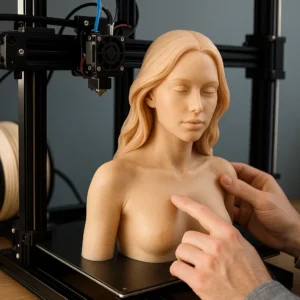Robots are no longer confined to science fiction — they are increasingly present in our daily lives. From smart assistants to lifelike humanoid companions, human–robot interaction (HRI) is reshaping the way people think, feel, and connect. While these innovations offer numerous benefits, they also raise important questions about psychology, relationships, and society as a whole. Understanding the psychological impact of these interactions is key to making informed choices about how we integrate robots into our lives.
The Appeal of Human-Like Robots
Humans are naturally drawn to lifelike representations of themselves. This is why people often form emotional bonds with pets, toys, or even digital characters in video games. Robots with human-like features — expressive faces, realistic voices, and adaptive behaviors — take this tendency to the next level. The ability to simulate empathy, respond to emotions, and maintain conversations makes robots feel less like machines and more like companions.
Psychologists call this tendency anthropomorphism — attributing human traits to non-human entities. This psychological mechanism helps explain why people can feel genuine attachment to robots, even when they are aware that the robot has no emotions of its own.
Benefits of Human–Robot Interaction
Engaging with robots can have positive psychological effects in different contexts:
- Social Support – Robots can reduce feelings of loneliness by providing consistent interaction, especially for the elderly or socially isolated individuals.
- Therapeutic Tools – In therapy, robots help children with autism practice social skills in a safe and controlled way.
- Motivation and Learning – Interactive robots can serve as tutors, fitness coaches, or motivational companions, making tasks more enjoyable.
- Stress Reduction – Simple interactions, such as talking to a friendly AI companion, can provide comfort and lower anxiety.
These benefits highlight how HRI can enhance emotional well-being, learning, and quality of life.
Challenges and Psychological Risks
Despite the advantages, there are also potential risks in human–robot relationships:
- Over-Reliance – People may become too dependent on robots, reducing motivation to engage with other humans.
- Unrealistic Expectations – The illusion of empathy in robots may create false expectations of emotional reciprocity.
- The Uncanny Valley – When robots appear almost, but not quite human, they can trigger discomfort or even fear.
- Identity and Boundaries – Blurring the line between machine and person raises ethical and psychological questions about attachment and identity.
These challenges suggest that while HRI can be beneficial, it must be approached with awareness and balance.
Real-World Applications in Psychology
Human–robot interaction is already being used in psychology and healthcare settings. For example:
- Elderly Care – Companion robots provide conversation, reminders, and comfort in nursing homes.
- Education – Robots are used in classrooms to improve student engagement and support personalized learning.
- Mental Health – AI-driven companions offer support for people struggling with anxiety or depression by providing non-judgmental conversations.
These real-world examples prove that robots can be valuable tools when used responsibly, especially as society faces growing issues of loneliness and stress.
The Future of Human–Robot Psychology
As AI becomes more advanced, robots will likely gain the ability to recognize complex emotions and respond with greater nuance. Virtual reality and augmented reality may blend with robotics to create even more immersive forms of companionship. Psychologists will play a vital role in studying how these relationships affect human identity, resilience, and social behavior.
The future of HRI is not just about building better machines — it is about understanding the human mind and creating technology that complements, rather than replaces, human connection.
Final Thoughts
Human–robot interaction is more than a technological innovation; it is a psychological phenomenon that taps into fundamental aspects of human behavior. While robots can provide companionship, therapy, and support, they also present challenges that must be navigated carefully. By studying their psychological impact, we can ensure that these interactions remain healthy, balanced, and beneficial for society.






